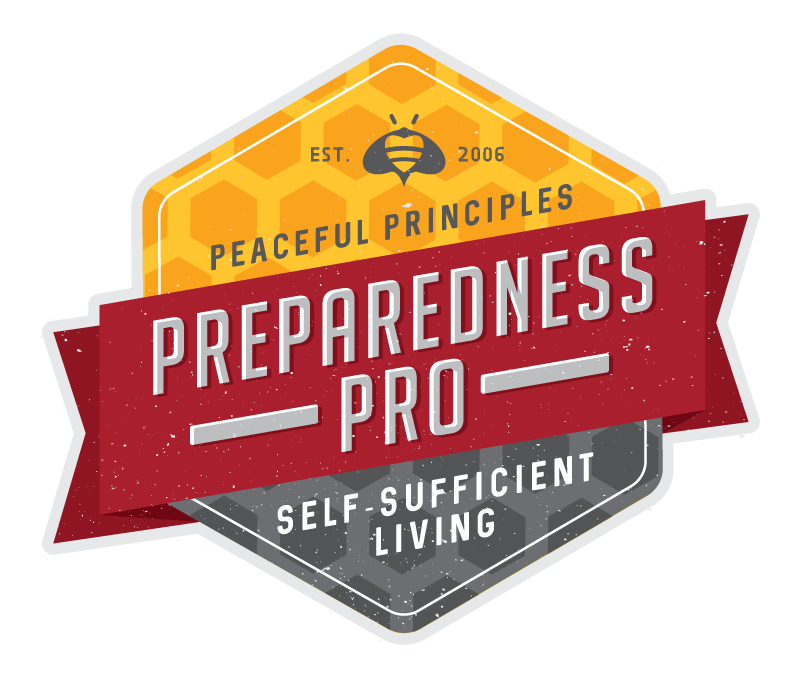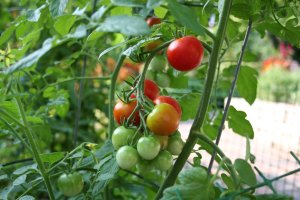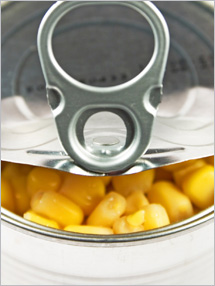So, about that garden you’re growing... What it IS ideal for is to provide your family with quality produce now—during the comfortable times—teach you how to successfully garden before your life may depend on it, and to provide yourself with affordable, safe produce that you can bottle and store for a “rainy day.” But, relying on your garden for “during an emergency” is not a safe play. Here’s why.
Gardening in an emergency takes up a great deal of physical energy. In my teachings I always point out that energy is the most important resource that you want to conserve. If you don’t have energy, you’re useless for just about anything. Understand that having to deal with an emergency can suck up a great deal of energy that you’re not used to expending at present. Just being without any climate control can do that to you, right? During an emergency survival situation, expending your precious energy that could otherwise be used to prepare food for your family, protect them, and comfort them will definitely take more time and effort than you are already accustomed to. Along those same lines, remember that gardening requires a lot of time as well. When you harvest it, it won’t be a matter of just picking produce, cleaning it in your kitchen sink, turning on the stove, putting some water in a pot, and preparing it. It will be more like pick it, filter your water, clean the produce, preserve the water for other uses, create your cooking source, wait for it to boil the water, filter more water, put just enough in the pot to cook the produce, etc., etc. You get the picture. Do you know if your body will be well enough for you to garden during an emergency? What would expend more energy—opening a jar/can of vegetables and fruit, or going out to harvest it? Think about it.
This leads me to another caution. At least in my part of the country, gardening requires regular and generous amount of water—a vital survival item. Whether you have a pool, a cistern, or an Artesian well, you have no idea what your water situation is going to be like. What if the water is contaminated? What if the water source is damaged in an earthquake?
Lastly, relying on your outdoor gardening abilities is presuming that all will be well outdoors in the event of an emergency. Because an earthquake, hurricane, tornado, or nuclear attack can shoot that plan all to bits, right?
While I get a great deal of joy from successfully consuming the fruits of my labors, I prepare myself by never assuming that something will be available to me. I anticipate a need for back up plans. It’s true that many military and intelligence personnel actually store weapons in multiple places—and I do mean multiple, even outside of their home. They do so in order to never get caught without their “survival tools.” I look at food storage the same way. I store seeds so that IF I can garden during an emergency, I will. But I store a lot of canned/jarred produce as well so that if I can’t, I still will get the nutrients I need.
To see our upcoming event schedule, click here
Check out our inhome-course programs
Subscribe to Preparedness Pro today and never miss a thing!
For any questions or comments on this article, please leave a comment on the blog site so that everyone can benefit!
Copyright Protected 2009, Preparedness Pro and Kellene. All Rights Reserved. No portion of any content on this site may be duplicated, transferred, copied, or published without written permission from the author. However, you are welcome to provide a link to the content on your site or in your written works.
Category:
© 2019 Of COURSE this post is Copyright Protected by Preparedness Pro. All Rights Reserved. NO portion of this article may be reposted, printed, copied, disbursed, etc. without first receiving written permission by the author. This content may be printed for personal use only. (Then again, laws are only as good as the people who keep them.) Preparedness Pro will pursue all violations of these rights just as vigorously as she does any of her other freedoms, liberties, and protections.




Comments
Kellene:
Excellent advice. Your comment about reserving available energy in an emergency situation was something that I learned in your Lights Out, Now What seminar. Of all the valuable info that I learned that evening, that was perhaps the most critical. THANKS for taking your available energy to teach us so well!
Glad you liked it Barbara! Let's do it again. *wink*
I think another thing to keep in mind is growing all your own produce takes a lot of experience. I've had a garden of some sort for the last 8 years, this year we tried to step it up and the results are less than stellar.
To go from a small garden to something able to sustain you would be tough..
Gardening doesn't have to be hard work, although setting a garden up would be; and if done now, before the emergency, would not be too difficult later when you might not have much energy. Once a garden is growing, a thick layer of mulch (3-4") improves the soil, keeps it moist, and blocks the sun from sprouting annual weed seeds. The health of the plants is better because they are being fed organic nutrients slowly, the way they like it. Raised garden beds help, but are not essential. I don't dig my garden because of a back problem, and my garden is doing better than ever before covered with mulch (earthworms love it). I understand the threat of no water because I live in the central valley of California (Fresno), which actually is a desert with piped water from San Francisco. I have been trying to figure out where our water will come from (besides what I have stored) if that pipeline is damaged or destroyed. I appreciate your spelling-it-out about how we would be preparing our garden food in an emergency, I wasn't thinking that way! If you have a thick mulch on your garden beds, then the produce is much cleaner--I eat a lot of stuff in my garden, straight from the plant.
Kellene,
*Excellent* advice! Until recently, I advised people to buy our non-hybrid seeds to use after their stored foods ran out. Then I realized that that advice was exactly backwards!
Folks need to learn how to garden ... and reserve their food storage in case of crop failure.